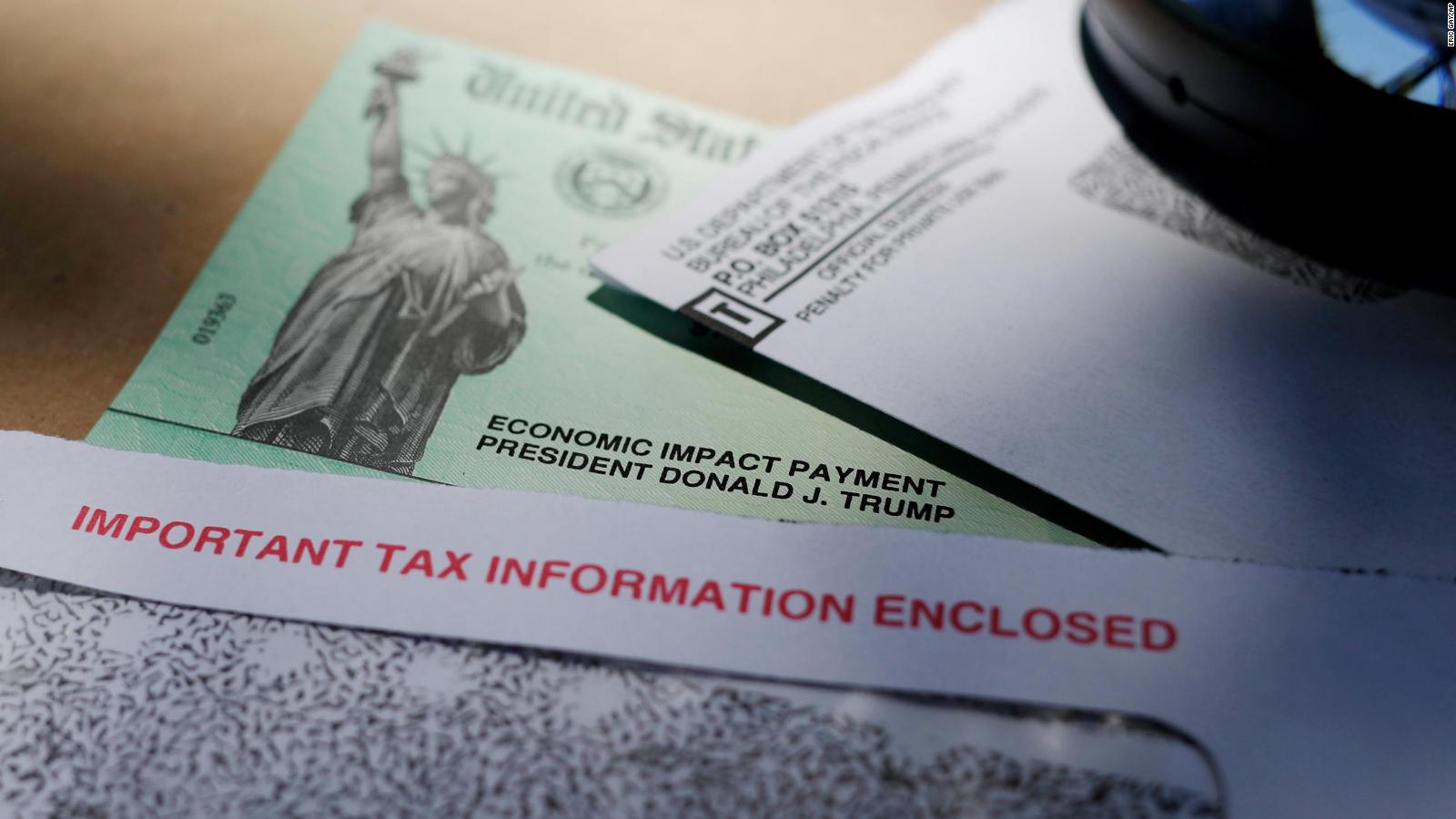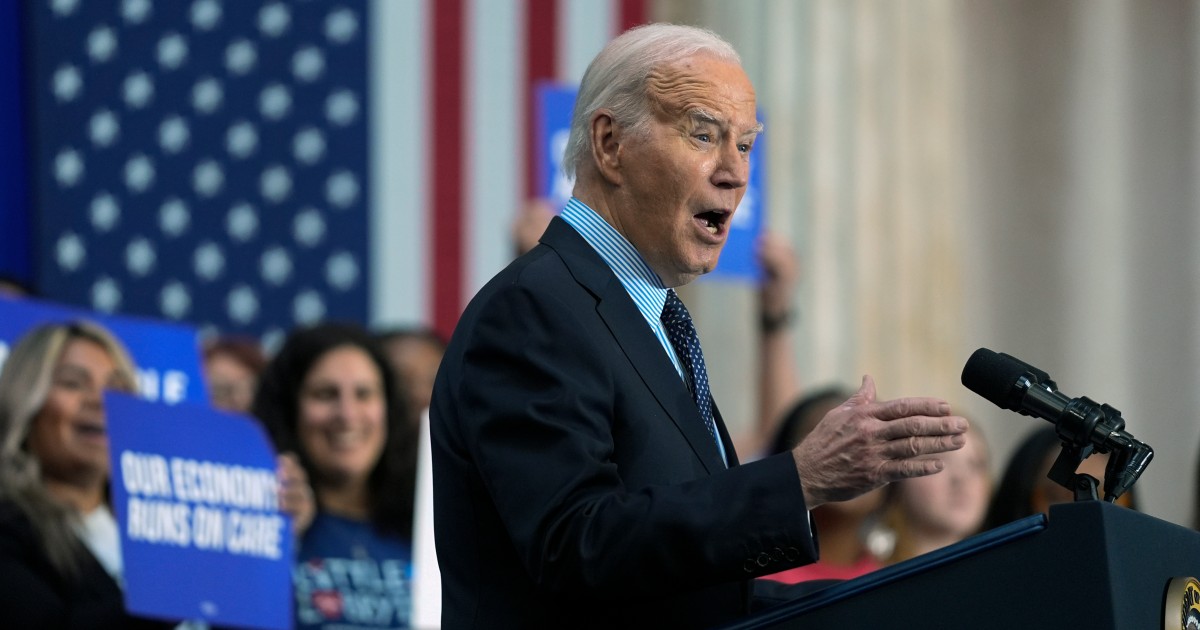Biden proposes relief payments of up to $ 2,000 0:58
New York (CNN Business) -
The costliest provision in Joe Biden's $ 1.9 trillion economic recovery plan is his proposal to give an additional $ 1,400 to most Americans.
For many economists, this is the least effective way to help jump-start the economy.
The additional stimulus stems from widespread support among Congressional Democrats and many Republicans, including outgoing President Donald Trump, to increase direct payments on the latest Covid-19 financial aid package from $ 600 to $ 2,000.
McConnell rejects Senate bill to increase stimulus checks to $ 2,000
"Six hundred dollars is just not enough if you still have to choose between paying the rent and putting food on the table," Biden said when revealing his economic recovery plan.
"Even for those who have kept their jobs, these checks are really important."
Encouragement directed at the wrong people
The problem with direct payments, according to economists and other critics of the plan, is that much of this stimulus would go to people who have not been economically harmed by the covid-19 pandemic.
That means those extra dollars may not do much to boost economic activity.
Checks for $ 1,400 would go to most people who earn less than $ 75,000.
Taxpayers who file joint returns and earn less than $ 150,000 would also qualify.
Those who earn more may qualify for lower amounts, capped at $ 87,000 for individual taxpayers to be eligible.
"That money is misdirected," said Mark Zandi, chief economist at Moody's Analytics.
advertising
Zandi said the only economic argument in favor of checks is that they are a politically feasible way to get a lot of cash into the economy fairly quickly.
"Politics matters and speed is more important than getting it right," he said.
But I think it is the second or third best policy.
It's certainly not the most effective way to help.
Many will not spend it
The money could be a lifeline for struggling taxpayers.
But one of the biggest problems, according to economists, is that many of those who receive the checks will put the money into savings or use it to pay off debts, neither of which will do much to increase overall economic activity.
"The accepted theory of household behavior is that a one-time payment does little to stimulate additional spending," said Joel Prakken, chief US economist at IHS Markit.
“The people who spend it will do so on purchases that are unlikely to be repeated.
It is increasingly difficult to argue that it will be an immediate stimulus to the economy.
A big part of the challenge of maintaining consumer spending during the pandemic has been that many of the goods and services that people spend money on in "normal" times are not available due to the crisis.
"That's given that a lot of the hole [in spending] is not due to the fact that people don't want to spend, but that they can't spend because they can't catch a flight or they can't go to a restaurant," said Larry Summers, in a recent interview on Bloomberg.
Summers was one of the leading economists in the early days of the Obama administration.
"I don't necessarily think that the priority should be to promote consumer spending beyond where we are now."
Although Summers has been a supporter of direct payments in the past, he is skeptical that the proposal will be effective this time.
"I'm not even sure I'm that excited about the $ 600 checks," he said.
"And I think taking them to $ 2,000 would be a pretty serious mistake."
Political difficulties
There is a possibility that Biden's proposal for the additional payments of $ 1,400 will not be approved.
The additional round of stimulus would cost the government $ 465 billion, according to the Commission for a Responsible Federal Budget.
That's roughly $ 100 billion more than what is being proposed to increase unemployment benefits.
Most experts believe that the entire $ 1.9 trillion package has little chance of becoming law and is likely to be passed in a reduced form.
In addition to bipartisan support for checks, there is also bipartisan opposition.
Among the leading Democratic critics is Senator Joe Manchin of West Virginia.
«I support helping people who need help.
People who are not enough.
People who don't have jobs, they can't put food on the table, "Manchin told CNN in a recent interview.
“Sending checks to people who basically already have a check, and are not going to spend it, who are putting it in their savings account right now, that's not who we are.
We have done a lot of that.
It's time to focus on where that money is going.
Sen. Mitch McConnell, who will be the minority leader in the new Democratic-controlled Senate, said he also opposes another round of stimulus checks despite support from some members of his group.
"It is no secret that Republicans have a diversity of views on the wisdom of borrowing hundreds of billions more of undirected money, even for many households that have suffered no loss of income during the crisis," he said in recent statements in the Senate.
“It is not clear that the federal government's top priority should be to send thousands of dollars to, for example, a childless couple who earn in six figures and who have been comfortably telecommuting all year.
Our duty is to help people who need help.
stimulus





/cloudfront-eu-central-1.images.arcpublishing.com/prisa/VBVLA4RLPJBHZEVSYQCSXI5CX4.jpg)



